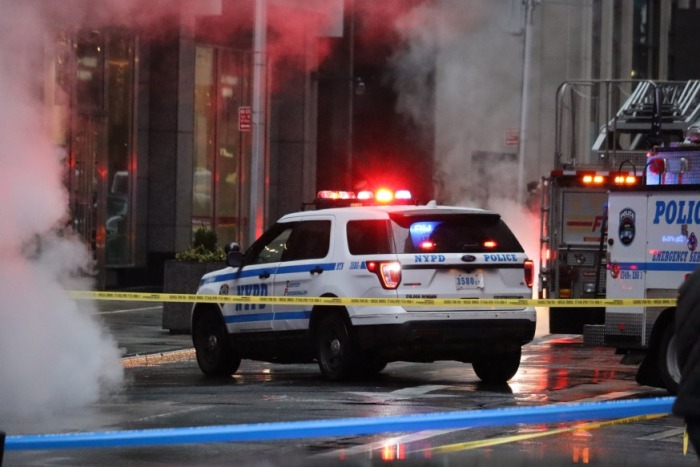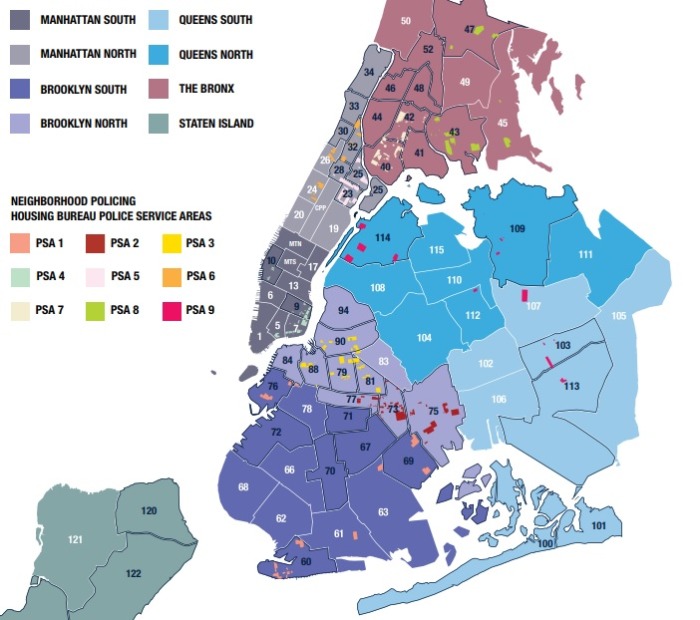
Photo by Campbell Jensen on Unsplash
March 4, 2022 By Christian Murray
Armed robberies, vicious assaults and hate crimes have become all too common in New York City in recent months and the borough of Queens is no exception.
There have been brutal attacks at subway stations, shootings at NYCHA complexes, to a rash of anti-Asian hate crimes.
For the year-to-date through Feb. 27, there has been a 58 percent increase in crime across the borough, compared to the same period a year ago. There has been a big spike in both violent crimes as well as property theft, such as grand larcenies and auto theft.
There have been 11 murders in Queens this year through Feb. 27, compared to nine for the same period a year ago. Meanwhile, there were 65 rapes reported through Feb. 27 compared to 48 for the same period in 2021. Additionally, there were 460 robberies reported this year through Feb. 27 vs. 311 last year, and 683 felony assaults compared to 567 the previous year.
No area in the borough has been spared, with all 16 precincts in Queens experiencing an increase in crime. The eight precincts in Queens North were up a collective 66 percent through Feb. 27, with significant increases in the 110 precinct, which covers Corona and Elmhurst, up a whopping 133 percent, and the 109 precinct, which covers Flushing, up 89 percent.
Meanwhile the eight precincts in Queens South were collectively up 48 percent for the year through Feb. 27, with notable increases in the 107 precinct, which covers Fresh Meadows, up 105 percent, and the 106 precinct in Ozone Park up 78 percent.
There have been 14 hate crimes reported in the borough year-to-date, with six of them in the 112th precinct, which covers Forest Hills and Rego Park, and three in both the 109 and 110 precincts. The total number of hate crimes in the borough is up from 5 this time last year.

Queens North, consisting of eight precincts, is in blue, Queens South, also consisting of eight precincts, is in light blue (NYPD)
Several elected officials told the Queens Post that the spike in violence is disturbing and said that steps need to be taken to get guns off the street, bolster violence prevention programs and address hate crimes. Many said they are working with precincts to come up with solutions.
Most attributed the increase to a lack of city services to help people with mental health issues, as well as the pandemic.
“This spike clearly reflects the increased economic, mental and physical distress brought on by the pandemic,” said Council Member Tiffany Cabán, who represents Astoria and East Elmhurst. “Across the city, we have seen a wide array of services struggle to provide our neighbors badly needed support due to a dramatically increased demand and reduced capacity. We have heard time and again, at hearings, public listening sessions, and elsewhere, about inadequate sanitation services, insufficient care in our city’s shelter system, and other such contributors.”
Cabán said that the city needs to scale up its “crisis management system and pilot innovative new violence prevention models.” She also said that the city needs to invest in reducing poverty and provide better housing, youth employment, high quality mental and physical health care, and other social services.
Meanwhile, Council Member Bob Holden, who represents several neighborhoods in central Queens including Middle Village, Glendale and Maspeth, said the increase can largely be attributed to anti-police rhetoric and the passage of bail reform in Albany. He also took aim at some of his fellow elected leaders arguing that they have inflamed the anti-cop sentiment.
“”The stats are not surprising,” Holden said. “They are the results of reckless, anti-police policies by the state and city governments for the past several years. Albany’s bail reform turned our jails into revolving doors, where judges can’t even consider how dangerous a criminal is.”
He added that “Anti-police rhetoric has been spewed from elected officials, while our cops are demoralized, demonized and don’t even have qualified immunity anymore. It’s open season on our police and New Yorkers are getting smeared with feces, stabbed or hit on the head with a hammer on their way to work.”
Holden, whose district cuts across five police precincts, said that Mayor Eric Adams is trying to turn the tide, but Albany needs to reverse its bail elimination policy. “We also need to treat our city’s rampant mental health problem, which we can do by using tools like Kendra’s Law. If we don’t do these things, these numbers are likely to increase.”
Queens Borough President Richards said that the safety of the borough is a top priority, and he is determined to put forward concrete solutions to cut crime and address some of its root causes.
“Just this week, my office met with police precincts and community leaders to address hate crimes against Asian and Jewish New Yorkers, and we will be meeting in coming weeks with NYPD leadership to examine what must be done to keep Queens residents safe in the short-term,” Richards said.
“At the same time, we must also be laser focused on addressing the long-term root causes of crime, which have been exacerbated by the COVID-19 pandemic — a lack of safe, affordable housing, historic disinvestment in underserved communities, education disparities, unemployment, a dearth of mental health services, systemic racism and more. Our families deserve nothing less than such a comprehensive approach to ensure the safety of our communities.”
Council Member Shekar Krishnan, whose district covers Jackson Heights and Elmhurst, shared the same views as Richards.
““Everyone deserves to feel safe,” he said. “I am disturbed by the rise in hate crimes which are impacting our Asian community specifically. That’s why we need to invest in strategies that will truly keep us safe including expanding mental health services, access to stable housing for all, and alleviating poverty with additional social services. “
Meanwhile, Julie Won, who represents the 26th Council District in western Queens, said that more needs to be done to stop guns from entering the community. “We need a comprehensive federal policy to prevent the movement of guns across state lines and prevent them from ending up in our city.”
She said that violence interrupter programs are effective in combatting crime but that the city needs to increase its investment in them. She said that in 2015, NYCHA Queensbridge Houses went a full year without a shooting, indicating that they do work.
Won said that $100 million is spent on these citywide programs, a fraction of the many billions of dollars that are allocated to the NYPD.
But she like most of the officials are calling for the city to invest in community programs.
“We need people to feel hopeful again,” Won said, whose district covers the 108 Precinct, which saw a 58 percent increase for the year through Feb. 27. “Many people who are committing these violent acts are not people who have the luxury of thinking about their own futures.”
“These violent actions are manifestations of their despair and desperation. We need to invest heavily in our under-resourced communities to counter the decades of intentional divestment and work on the ground to build the connections necessary to create hopeful communities that have the resources to take care of themselves and their neighbors.”
3 Comments

“This spike clearly reflects the increased economic, mental and physical distress brought on by the pandemic,” Wrong. The spike is the direct result of Democratic leaders letting criminals out of jails, implementing no cash bail, while defunding/undermining the police. The evidence is there. Stop covering your tracks with sappy narratives. Blood is on their hands and they have no issues with it.
and what the elected official are doing beside being on tv or sitting in Albany and washington no one has seen then since they win there election now they don’t need us
Thank you Gianaris and Caban, looks like your soft on crime effort is paying off. I understand you both can stay home and tweet your way out of any responsibility, just blame the pandemic. The facts show different story you killed the Amazon deal and lost us 30000 jobs and now crime is rampant. What we need is term limit for all politicians.